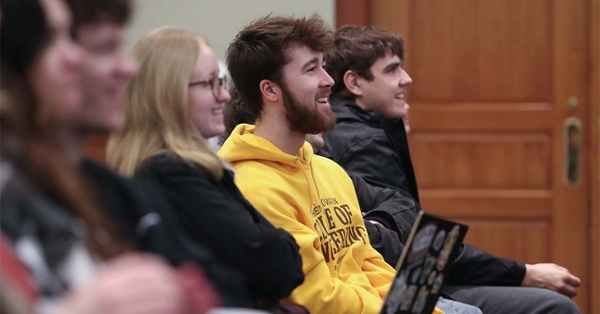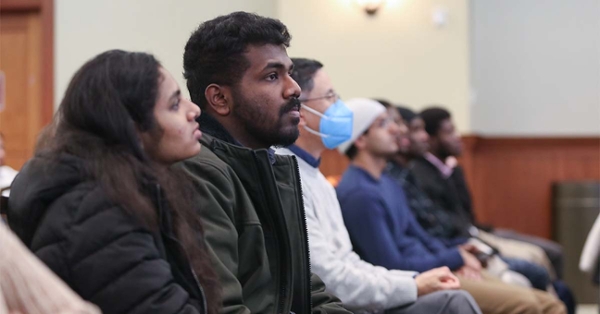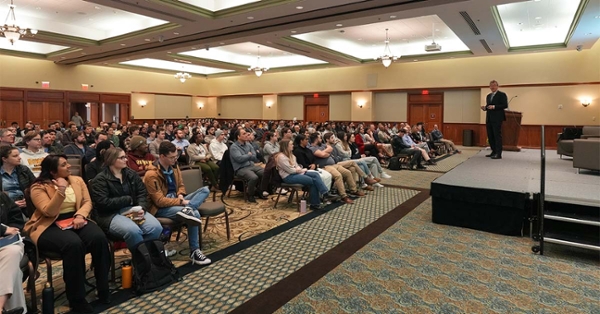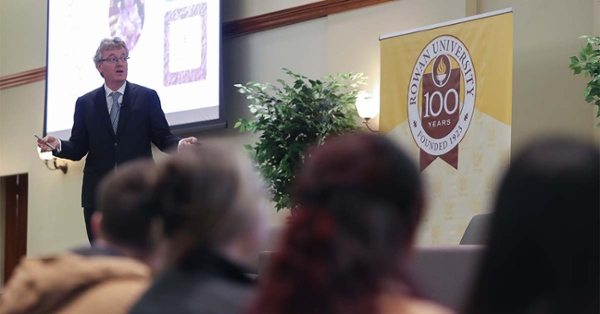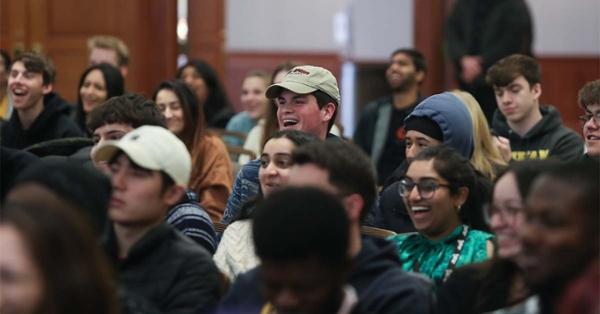Nobel laureate: ‘Eureka’ moment led to democratizing discovery
Nobel laureate: ‘Eureka’ moment led to democratizing discovery
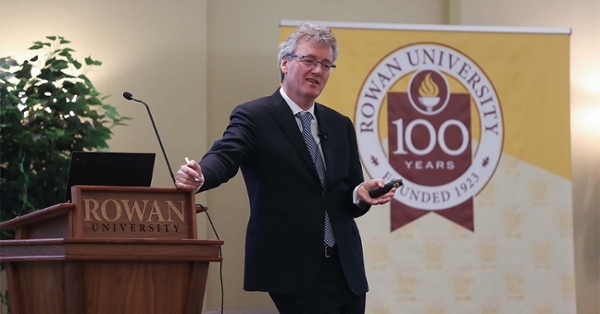
A revolutionary discovery in chemistry began with a question from a graduate student.
At Friday morning’s Centennial lecture in the Eynon Ballroom, before a crowd of students, faculty and members of the broader Rowan community, Princeton University professor David MacMillan, Ph.D., shared his story of a career in research, from growing up in government housing near a Scottish steel mill to meeting luminaries around the world.
In 1998, while an assistant professor at the University of California, Berkeley, MacMillan showed his student the mechanism of a well-known chemical reaction called reductive amination. At the time, accelerating the rate of reactions—an important process called catalysis—often relied on expensive rare metals that were also sensitive to air and humidity.
As MacMillan drew the mechanism, he recalled, “It was right there, right then, that I had this quintessential ‘eureka’ moment.” It was a startling realization that led to years of research by MacMillan’s lab to explore how organic molecules could be used to speed complex chemical reactions, making them far less expensive, more environmentally friendly and easier to achieve.
MacMillan’s discovery led to a 2021 Nobel Prize in chemistry shared with Benjamin List, Ph.D., who independently led similar investigations into what would eventually be known as the field of asymmetric organocatalysis.
Their work led to subsequent discoveries in research labs around the world. Today, organocatalysis is used in the discovery and manufacture of fragrances, flavors and pharmaceuticals.
Another result was the democratization of catalysis, MacMillan said.
“Organocatalysis is incredibly inexpensive,” MacMillan said. The process is practiced, taught and researched on every continent in the world, he added, regardless of financial or infrastructure resources.
“People often ask me what is going to be the next big development in organocatalysis,” MacMillan said, “and I often tell them, ‘I have absolutely no idea.’ But one thing I tell them is that it’s not going to be based on who has the most money. It’s going to be based on who has the best idea.”
Ethan Gray, a junior chemistry major, said he’s thinking about attending graduate school in the future and MacMillan’s down-to-earth lecture made a career in research seem more relatable.
“Not everybody’s going to be a Nobel Prize winner,” Gray said, “but seeing somebody who actually has attained that and what their process was is really interesting.”
Chimnecherem Obiadazie, a first-year student pursuing a degree in molecular and cellular biology, spoke with MacMillan for several minutes following the lecture. An international student from Nigeria, Obiadazie said he was impressed by MacMillan’s personal story and humility.
“He’s really a human,” Obiadazie said. “Embracing that aspect of him without having to look at his achievements … to understand he’s really a person who is inquisitive about life—that’s just the biggest thing.”
Vojislava Pophristic, dean of the College of Science & Mathematics, said the event celebrated science, discovery and innovation.
“Dr. MacMillan’s lecture provided a stimulating celebration of scientific innovation in chemistry,” Pophristic said. “His passion for discovery catalyzes a vision for Rowan’s future contributions to education and research.”
